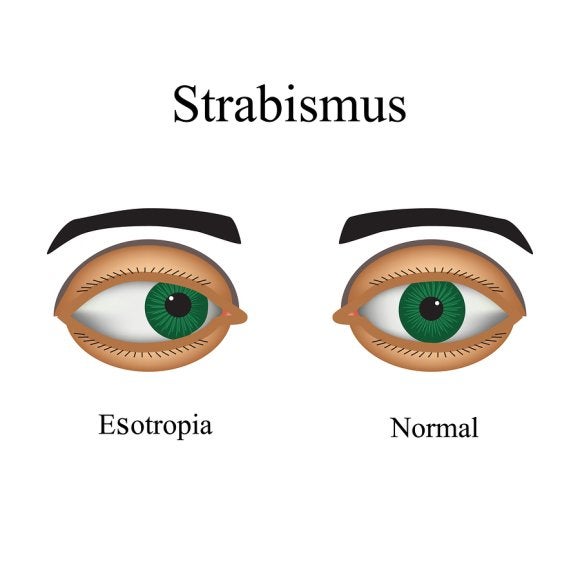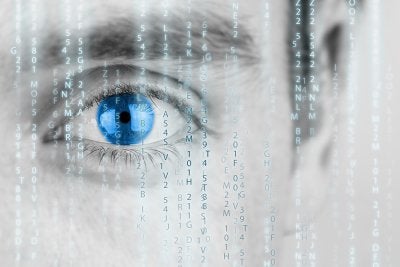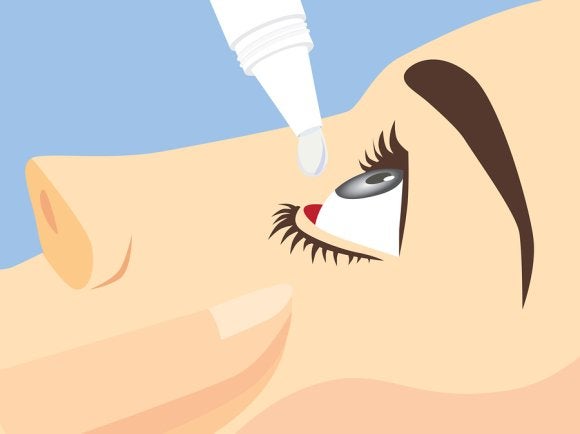-
What Is Strabismus?
More commonly referred to as “crossed eyes,” strabismus is a disorder in which the eyes are out of alignment with each other. In other words, they do not focus on the same object at the same time. Strabismus is often present at birth, although it can develop in adults. If you or your child has the appearance of being cross-eyed, it’s important to visit an ophthalmologist at an ophthalmology practice in Chicago. An ophthalmologist can help you understand the condition, including its possible causes such as cerebral palsy, traumatic brain injury (TBI), stroke, or eye injuries.
For a child with strabismus, vision correction often involves placing an eyepatch over the stronger eye to force the weaker eye to become stronger. Adults with mild strabismus may benefit from eye muscle exercises and eyeglasses. However, for a child or for an adult, eye muscle surgery may be needed in severe cases and for symptoms that are not sufficiently addressed through conservative treatments.

-
Protecting Your Eyes from Fireworks
Fireworks are an iconic part of summer. Unfortunately, fireworks are as dangerous as they are beautiful. Every year, thousands of patients are seen in emergency rooms across the country because of injuries caused by fireworks. Often, these injuries involve the face. Because eye injuries, other catastrophic injuries, and death can occur from the misuse of fireworks, June has been declared National Fireworks Safety Month. This awareness month, which actually runs through the Fourth of July, was designed to help consumers prevent fireworks injuries. If you plan to ignite fireworks this summer and live in Chicago, follow some basic eye care tips. An ophthalmologist at your local ophthalmology practice can work wonders with modern medical technology, but eye injuries caused by fireworks can cause permanent damage and vision loss.

Reconsidering the Use of Fireworks at Home
The only safe way to enjoy fireworks is to view a show put together by professionals. Enjoy the fireworks display from behind the safety barriers at a distance of at least 500 feet.
Using Appropriate Safety Gear
If you do plan to use fireworks at home, check your local laws first to be sure they are legal in your area. Then, purchase safety glasses for everyone who will be handling the fireworks. Your ophthalmologist can recommend an approved type of safety glasses. Keep a bucket of water nearby and have access to a garden hose.
Igniting Fireworks as Safely as Possible
Never allow children to ignite, handle, or come near fireworks. This includes sparklers, which can burn at about 2,000 degrees Fahrenheit. This temperature is hot enough to melt certain metals. When an adult is ready to light the fuse, he or she should avoid placing any part of the body over the fireworks device. Instead, the adult should hold the lighter out at arm’s length away from the body to light the device. Immediately upon ignition, the adult should back away quickly. Alcohol should never be consumed before or during the handling of fireworks. Furthermore, adults should never attempt to re-light a “dud” firework. Instead, wait 20 minutes and then soak it in water.
-
Practicing Good Eye Health
Good eye health is essential for your quality of life. Unfortunately, many people take their vision for granted until they experience problems. One of the best ways to promote good eye health is to make an appointment with an eye doctor each year for an exam. When you visit the ophthalmology practice in Chicago, the ophthalmologist will do much more than update your vision correction prescription as needed.
As you’ll learn when you watch this video, your ophthalmologist will also check for the early signs of eye health problems such as macular degeneration, diabetic retinopathy, and glaucoma. These are the three leading causes of vision loss in the U.S. The eye doctor in this video explains how these problems develop. If you’re concerned about your risk of eye diseases, talk to your ophthalmologist about ways of managing your risk.
-
What Is Dry Eye?
Dry eye is extremely uncomfortable, and when left untreated, can lead to chronic pain, eye ulcers, and corneal scarring. See your eye doctor for dry eye treatment in Chicago to prevent long-term complications and chronic discomfort.
Dry eye occurs when the eye either doesn’t produce an adequate amount of tears or produces tears that evaporate too quickly. This causes inflammation that can make it difficult to look at a computer screen, watch television, or read. With dry eye, patients experience stinging, burning, the feeling of sand in the eyes, redness, inability to cry, and decreased tolerance for dry environments. There are many different causes, ranging from medications to certain eye diseases.
There are a number of different ways your doctor can treat dry eye. Sometimes, switching medications can be the solution. Other patients benefit from eye drops and nutritional supplements. In rare cases, eye surgery to prevent premature tear evaporation could be helpful. Your eye doctor will devise a dry eye treatment plan based on the root cause of your symptoms.

